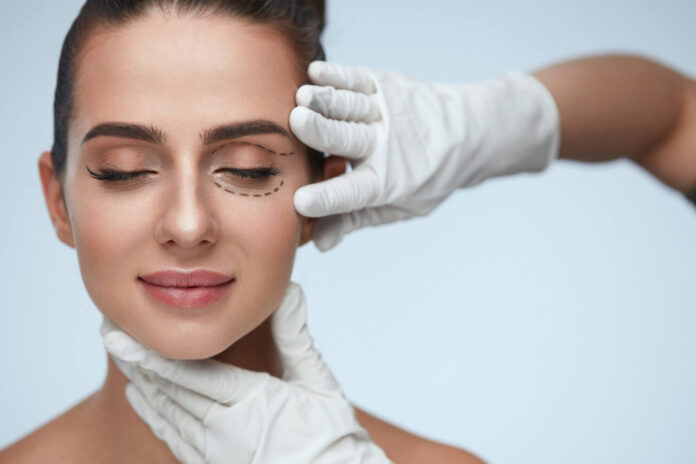The increasing interest in cosmetic surgery among young adults marks a significant shift in the landscape of aesthetic enhancement. This trend reflects a complex interplay of societal, cultural, and technological factors. The article aims to delve into the reasons behind the growing appeal of cosmetic procedures in this demographic, examining how factors such as social media influence, celebrity culture, and advancements in medical technology contribute to this surge.
It’s crucial to explore not just the what and how, but also the why: why are more young adults turning to cosmetic surgery? What does this say about current beauty standards and societal expectations?
This exploration seeks to uncover the underlying motivations driving young adults towards these procedures and the broader implications this has on society and individual well-being.
As we navigate through this topic, we will also consider the psychological and physical impacts of this trend, aiming to provide a comprehensive understanding of this phenomenon in contemporary culture.

Surge in Young Adult Procedures
The recent years have witnessed a noticeable surge in cosmetic surgery procedures among young adults, a trend that is gaining momentum across various demographics. The age group of 18 to 30 has shown a particularly significant rise in opting for both invasive and non-invasive cosmetic procedures. This trend is reflected in the increasing number of inquiries and consultations reported by many surgery center websites, indicating a growing interest in aesthetic enhancements among the younger population.
The procedures range from minimally invasive treatments like Botox and dermal fillers to more significant surgeries like rhinoplasty and breast augmentation. The reasons behind this surge are multifaceted, involving factors such as the desire for enhanced self-image, the influence of social media, and the accessibility of information and options available on platforms like (https://
Influences Driving the Trend
The rising trend of cosmetic surgery among young adults is influenced by a multitude of factors, each playing a significant role in shaping perceptions and decisions.
Understanding these influences is crucial for comprehending the broader implications of this trend:
- Social Media Impact: Platforms like Instagram and TikTok often showcase idealized beauty standards.
- Celebrity Influence: Public figures undergoing cosmetic procedures can motivate fans to follow suit.
- Technological Advancements: Innovations in cosmetic surgery have made procedures safer and more accessible.
- Peer Pressure and Social Trends: The desire to fit in or stand out among peers can drive the decision.
- Increased Media Exposure: Widespread coverage of cosmetic procedures in media normalizes them.
For further insights into the impact of media on young adults’ perceptions, the American Academy of Pediatrics provides valuable information. These influences converge to create an environment where cosmetic surgery is increasingly viewed as a viable option for young adults. Social media, in particular, plays a pivotal role, often presenting an altered version of reality that can skew self-perception and expectations.
The celebrity effect, combined with advancements in surgical techniques, further fuels this trend, making cosmetic procedures seem more attainable and desirable. Additionally, the peer dynamics and societal norms that are evolving in the digital age contribute to this growing inclination towards aesthetic enhancements.
Acknowledging and understanding these influences is key to addressing the underlying factors contributing to the surge in cosmetic surgery among young adults.

Impact on Mental Health
The decision to undergo cosmetic surgery, especially at a young age, can have profound implications on an individual’s mental health. While some young adults experience a boost in self-esteem and confidence post-surgery, others may face unexpected psychological challenges. The anticipation of a transformed appearance and improved social acceptance can create high expectations.
However, if the surgical outcome does not align with these expectations, it can lead to disappointment, anxiety, or even depression.
Moreover, the mental readiness to handle the changes in one’s appearance and the reactions from peers and family is a critical aspect often overlooked. Young adults, still in the formative years of developing their identity, may struggle with these adjustments. Additionally, the initial positive emotional response can sometimes be temporary, masking underlying issues related to body image and self-esteem.
Therefore, it’s essential for healthcare providers to not only evaluate the physical suitability of candidates for cosmetic surgery but also their psychological state. Pre- and post-surgery counseling can play a significant role in preparing young adults for the emotional journey associated with aesthetic changes. By addressing these mental health aspects, the overall well-being of individuals opting for cosmetic surgery can be better supported, leading to more positive and sustainable outcomes.
Risks and Safety Concerns
When considering cosmetic surgery, especially for young adults, it’s crucial to weigh the risks and safety concerns associated with these procedures.
Understanding these risks can help in making informed decisions:
- Physical Health Risks: Includes complications like infection, scarring, and issues related to anesthesia.
- Psychological Impact: Potential for disappointment if outcomes don’t meet expectations.
- Long-term Effects: Consideration of how choices made at a young age might be perceived in the future.
For a comprehensive understanding of these risks, the American Society of Plastic Surgeons provides detailed information and resources. While advancements in technology and surgical techniques have made cosmetic procedures safer, they are not without risks. Physical health complications, though rare, can occur and may have lasting effects.
Moreover, the psychological impact and the potential for negative emotional responses post-surgery are significant, particularly for younger individuals whose self-identity might still be evolving. Understanding these risks and discussing them openly with a qualified healthcare professional is essential. This ensures that individuals, especially young adults, are fully aware of and prepared for both the physical and emotional outcomes of their decision to undergo cosmetic surgery.

Societal Perceptions and Change
The societal perceptions surrounding cosmetic surgery, particularly among young adults, have undergone significant changes over the years. These shifts are largely influenced by how the internet and social media are shaping societal norms and values. An exploration into how the internet influences the mindset of the youth reveals the profound impact these platforms have on their perceptions of beauty and self-image.
The constant exposure to idealized images and the growing normalization of cosmetic surgery in online communities have contributed to a more accepting attitude towards these procedures.
This societal shift is not just limited to perceptions of beauty but also extends to how cosmetic surgery is viewed as a means of self-improvement and expression. Young adults today are more likely to view cosmetic surgery as a personal choice and a legitimate way to enhance self-esteem and confidence.
However, this change also raises questions about the pressures of unrealistic beauty standards and the potential risks of making permanent changes at a young age. The evolving societal perceptions highlight the need for ongoing discussions about the implications of these trends, ensuring that young adults make informed decisions that prioritize their physical and mental well-being.
Future Implications
The increasing trend of cosmetic surgery among young adults signifies a critical juncture in societal values and individual self-perception. As this trend continues to evolve, it’s imperative to foster a balanced perspective that prioritizes informed decision-making and holistic well-being over fleeting beauty standards.
The future will likely see further debates and developments in this field, emphasizing the importance of ethical considerations and mental health support in cosmetic surgery.









